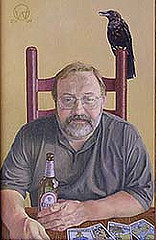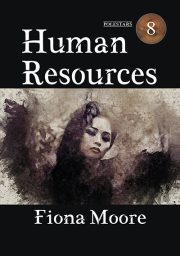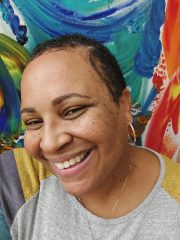Interview: Jeffrey Ford
 Before we discuss your career as a writer, I am curious about your other job, that of being a professor. In what ways has being a professor influenced your views of the world and its people? Have you found yourself ever taking a situation in the classroom and incorporating elements of it into your fiction?
Before we discuss your career as a writer, I am curious about your other job, that of being a professor. In what ways has being a professor influenced your views of the world and its people? Have you found yourself ever taking a situation in the classroom and incorporating elements of it into your fiction?
Teaching has been its own journey that sometimes intersects with my journey as a writer. I enjoy it. I’ve been teaching for 25 years now, 22 of it teaching at least five courses a semester, two semesters a year, with anywhere from 75 to a 100 students, a lot of them writing a lot. In that time I’ve met thousands of people, helped some of them with their writing, gotten some of them into Early American Literature, listened, did way too much talking, and learned a great deal. Two important things I learned from teaching are: 1) If you let them, people will surprise you. 2) Even though it is not always evident, most young people have a desire to be successful, not necessarily in a monetary sense but in doing something worthwhile with their lives. Figuring out how to recognize that in each individual is the job of teaching. I’ve had much success in this, but can also recall, realizing too late, total failures on my part that I can never seem to shake no matter how many years go by. The people I work with are, to a person, all very cool. Brookdale Community College, where I teach, has stubbornly retained its sense of humanity over the years through the efforts of all. Not a bad gig, if you have to work.
Very cool! I’ve been a teacher myself for most of the past 10 years and I agree wholeheartedly with what you said there. I recently read your short story “The Honeyed Knot” and I felt a special attachment to that story because of how it seemed to intersect the personal and professional lives of a teacher. Have you written other stories that came close to touching upon what you’ve experienced as a teacher over the years?
There’s one other very brief story in my recent collection, “Ariadne’s Mother.” I’d like to write more fiction about my experiences teaching, but I’m torn in doing so. To write this kind of stuff, I’d have to base it on real-life experiences—it’s the way I know that I could get the most out of the subject—otherwise it would come across cliche. There are elements in the real world of the classroom and teacher/student interactions that are compelling but, like dreams, seem lame if faked. On the one hand, using the stuff of my students’ lives, even with names changed, seems somehow morally wrong. On the other hand, as a writer, I feel I need to express myself, my experiences of the world, that I have an intrinsic right to and that that should ultimately top all concerns. So I’m kind of stuck in the middle, and though there are at least a solid dozen stories I could tell (some of them genuinely weird or supernatural), and a hundred more I could develop, I don’t know. Perhaps when I retire I’ll put it all together in a novel.


